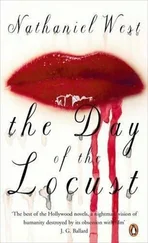
As he had anticipated, the winter was long and bitterly cold, but as he also expected, he and both horses survived it, although the horses looked a little thin and ragged. He knew that would soon be improved, now that the valleys were becoming passable once again and the warmer weather brought new grass. He waited until spring showed definite signs that she was officially here. Then, eager to move again after being confined for months, he packed his belongings on Brownie and saddled the bay. It was time to see more of Paha Sapa, and well aware of Stonewall behind him, he was eager to put more distance between himself and that town of gold seekers. It was bound to become even more populated by prospectors hoping to strike it rich, so he set his horse’s nose on the mountains to the north.
On one knee, Wolf bent low to examine the tracks beside a wide stream that was swollen with melted snow from the cliffs above him. There was nothing to figure out. The tracks told a simple story—Indians—for the hoofprints were left by unshod ponies, and there were also moccasin prints in the sandy bank. A war party had crossed here not more than a few hours earlier. With no desire to tangle with what he figured to be at least a dozen or more warriors, probably intent upon attacking isolated mining claims, he crossed over the stream to look for their tracks on the other side. They appeared to be heading in the same general direction as he, so he decided it best to alter his course so as to be sure to avoid them. Veering off more to the west, he continued on his way.
He had ridden no more than an hour when he came upon another trail that cut across his, leading toward a wide stream. It was fed by a waterfall cascading from a rocky notch about halfway up an almost vertical mountainside. Out of habit, he dismounted to examine the tracks more closely. Another raiding party, he thought, about the same size as the one back yonder. Then it struck him that it was probably the same war party. They had changed their direction. The tracks, along with some droppings from the ponies, told him that he was still hours behind the Indians. “I reckon I can turn back more toward the north now,” he commented to Brownie, “and let these fellers go about their business, whatever mischief they’re into.” With one foot in the stirrup, he paused a moment before throwing his other leg over. Once again, his natural curiosity prompted him to change his mind. Maybe I’ll see what these boys are up to, he thought, and turned the bay’s head to the west before settling in the saddle.
With thoughts of avoiding riding into an ambush, he rode across the valley toward the stream, his eyes constantly searching the slopes that formed the far side of the valley. If they’re lying around up there, waiting to ambush me, he thought, they’re pretty well hidden . Reaching the bank of the stream, he started following it toward the waterfall. It was then that he saw the smoke, causing him to pull his horses up sharply while he thought it over. Too spread out to be from a campfire, the thin wisps of smoke wafted lazily up from what appeared to be two or three different sources, hidden from him behind a low hogback. He pulled the Winchester from his saddle sling and cranked a cartridge into the chamber.
With no intention of riding straight in to investigate, he wheeled the bay around and set out at a lope to circle around to the side of the rise. When he reached a point roughly opposite the origin of the smoke, he pulled back on the reins and dismounted, leaving the two horses there while he made his way on foot through the maze of trees that bordered the stream. At the top of the rise, he paused to take in the scene of the massacre. There was no sign of the raiders, only the blatant evidence of their evil passage. Smoldering slowly, a wagon sat, half-burned before the flames had died. Beyond it, two tents were still smoking, a result of the war party’s efforts to set them ablaze, but the canvas had seemed reluctant to burn. As his eyes scanned slowly across the destroyed campsite, his gaze finally lit upon one body and then, several yards away, another body. He rose to his feet and walked down the slope to the camp.
From all appearances, the two prospectors had been caught completely by surprise. A pan was lying on a flat rock at the edge of the stream, and the loose gravel and sand told him that the body had either dragged itself or been dragged away from the water to the spot where it now lay. An older man, he had been scalped, his body mutilated, probably with a hatchet or war axe. The second body was that of a younger man. It appeared he had been running toward one of the tents when he was shot several times. Like his partner, he had been chopped to pieces and scalped. Wolf was not without compassion for the innocent victims, but he was not shocked by what he saw. Since he was eleven, he had lived in the violent world of the warriors of the plains. In his many years living with the Crows, he had learned to count the Sioux as the enemy, but he understood their hatred for the white man. How could it not be a natural reaction when their hunting grounds, even their sacred hills, were rapidly being taken away by the white man? As for these unfortunate victims of a Sioux war party, he was sure there were grieving relatives who would never know what had happened to them. But they had no business here. Even so, he knew that, had he been here at the time of the attack, he would have helped the prospectors fight.
There was no thought of burying the bodies. Doing so would have told the Sioux war party that he had been there, if for some reason they happened to return. It mattered little, anyway, he believed, for the spirits of the two men had departed their bodies. A quick scout around the camp told him that the Sioux warriors had moved off toward a ravine near the pool at the bottom of the waterfall. Wolf had not noticed it upon first reaching the camp, but the Sioux must have known it was there, since their tracks led straight to it. It took only a moment’s thought before he decided to follow them. It was a natural impulse on his part, for he had grown up from childhood keeping a vigilant eye upon those who might threaten him. It was better, he thought, to track them so that he would know where they were, instead of the other way around.
As he had suspected, the ravine led him down to a broad lower valley and the beginnings of a rough wagon road that ran straight up the middle. It was not necessary to dismount to inspect the tracks he saw. They were left by heavily loaded wagons—freighters, he guessed, probably pulled by four-horse teams, judging by the many hoofprints. He remembered then what Reuben Little had told him: there were many wagon roads reaching into the valleys. The party of warriors had turned back to follow the road. He guessed their intention was to look for more victims to murder. With that possibility in mind, he felt he had no choice but to follow. Feeling a small sense of urgency now, he nudged the bay to pick up the pace.
It was fully a mile and a quarter to the south end of the valley, and he followed the road through a narrow notch that led to a winding trail around the base of two mountains. It was his guess that the party of warriors was returning to a village somewhere on the plains, possibly as far as the Belle Fourche, since by his estimate, the trail he was following would soon be out of the mountains. As he came to a point where the trail took a sharp turn, he heard the first of a great many shots ring out somewhere beyond the turn of the trail a quarter of a mile ahead. Soon the sound of answering fire echoed back from the narrow canyon, and he assumed the war party had found another prospector. He gave the bay a slight kick and headed for the bend in the trail at a gallop.
Читать дальше












